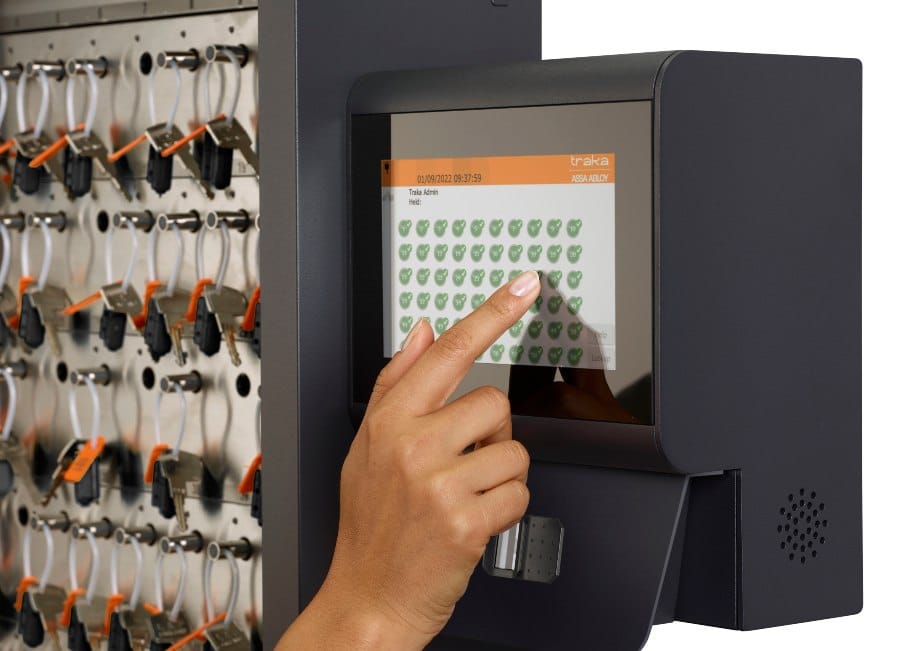How Traka’s solutions are revolutionising autism care


James Thorpe
Share this content
Traka’s Raffaele Ceravolo explains how Anderson Center for Autism utilises electronic key management to enhance facility management and safety.
As the healthcare industry evolves and becomes more sophisticated, so does the need for security in specialised residential schools.
For residential programs housing vulnerable populations, safety goes beyond conventional measures and demands a comprehensive and efficient solution in keeping with the residential life atmosphere.
One school that has taken security to the next level is Anderson Center for Autism, located in Staatsburg, NY, US.
Anderson Center for Autism is a 100+ acre residential school serving school-age children with autism.
Anderson supports over 130 residential and 14 students attending school while living at home in nearby communities.
Set in a bucolic landscape, Anderson Center provides a “home away from home” for students benefitting from 24-hour care and instruction.
One of Dutchess County, NY’s largest employers, Anderson’s team comprises nearly 900 staff members.
Its buildings with access needs for several departments present an ecosystem that requires an innovative security approach.
One of the primary security fixtures on campus is the electronic key cabinet in the main lobby; the cabinet houses over 70 keys to various departments and equipment throughout the campus and is a centralised hub for critical access control.
The key cabinet also sends an important message to current and prospective residents and families – that the safety of everyone is a top priority.
Enhanced security and efficiency
The cabinet’s location in the lobby is not by coincidence, but by design, communicating the facility’s commitment to security.
Before installing the key cabinet, the facility operated with a pegboard system, requiring staff members to check out a key manually from the operations department for any vehicle or access to a designated room.
The manual system created issues, particularly with after-hours access.
Security challenges are not typically confined to a nine to five schedule, which causes difficulties if a coordinator is not present on-site.
Additionally, keys not returned on time create an inaccurate inventory of shared assets in the facility.
However, after implementing the key cabinet system, Anderson Center for Autism saw improvements in workflow and processes, especially with its fleet of shared vehicles.
Instead of accessing a vehicle key from an employee, staff scan ID badges and check out a vehicle key directly from the cabinet.
The coordinator in charge of monitoring can immediately track which employee has which vehicle and receive an alert if the user misses the curfew.
Furthermore, users can log any faults the vehicle is experiencing directly to the interface, which helps extend vehicle longevity while saving time and money.
As a result, the coordinator can address issues and even remove a vehicle from service.
Implementing an electronic key cabinet has also made access to the healthcare campus more efficient.
Anderson Center can now grant access to various support personnel and contractors daily, whether to cut down a tree, fix a plumbing issue or repair a window.
The operation coordinators can assign access remotely to a specific key that accesses a tool room and attach a curfew to ensure that the contractor returns it by a particular time.
This cabinet feature has helped ease the strain on operations staff, who no longer need to be present to assign access to keys and can easily monitor the usage of all keys from employees and outside parties.
Medicine distribution is another critically important sector that now utilises the key cabinet.
Residents of Anderson Center have unique medical needs and require access to the appropriate medication, making it vital for personnel to secure access to medicine cabinet keys in a centralised, controlled location.
The key cabinet’s central location allows staff to simplify the monitoring process and protect against unauthorised access to critical keys.
With the key cabinet, the Anderson Center knows who accessed the medicine cabinet keys and when a team member returned them.
Within six months of using the key cabinet, word travelled on how operations utilised the key management system and the benefits they saw.
As a result, other departments in the facility inquired about how they could leverage the system.
Anderson Center Chief Facilities Officer Jose Castillo asked: “What’s important for you?” This question is essential for every healthcare organisation to ask itself, with the follow-up question of: “What are we not thinking of?” concerning security access.
The safety and wellbeing of residents at Anderson Center for Autism is paramount. The key cabinet in the main lobby underscores this commitment to safety.
As families walk through the entrance, they see the key cabinet and realise the facility proactively addresses security needs by constantly evaluating technologies to leverage critical key management.
In a rapidly evolving healthcare industry, Anderson Center for Autism has set a new standard for intelligent key management, demonstrating technology’s crucial role in enhancing security in healthcare facilities.
Through innovative security measures, many residential programs can instil confidence in residents while creating operational efficiencies for employees.

